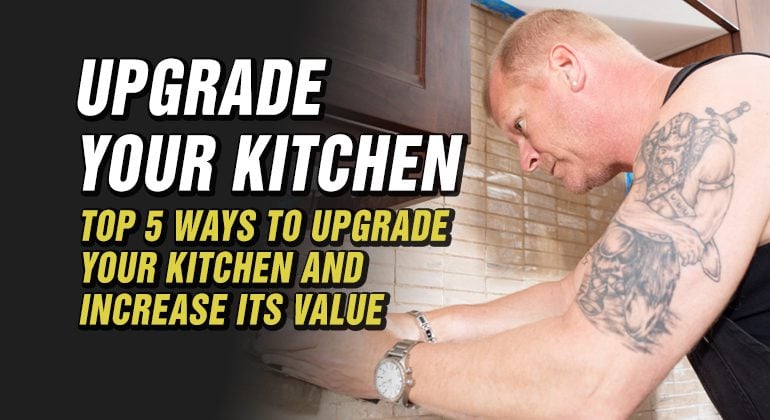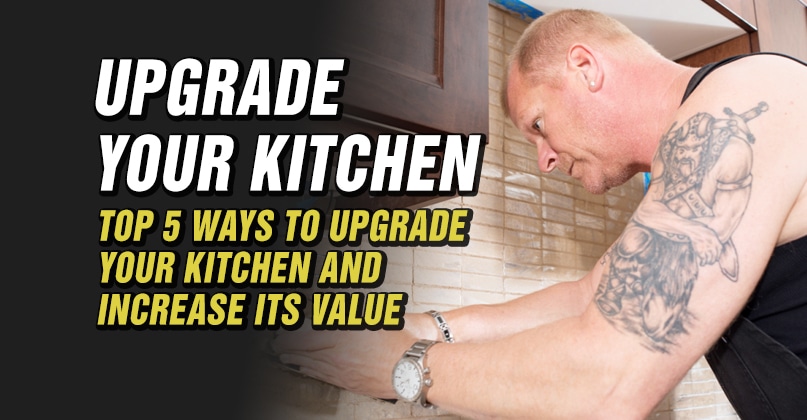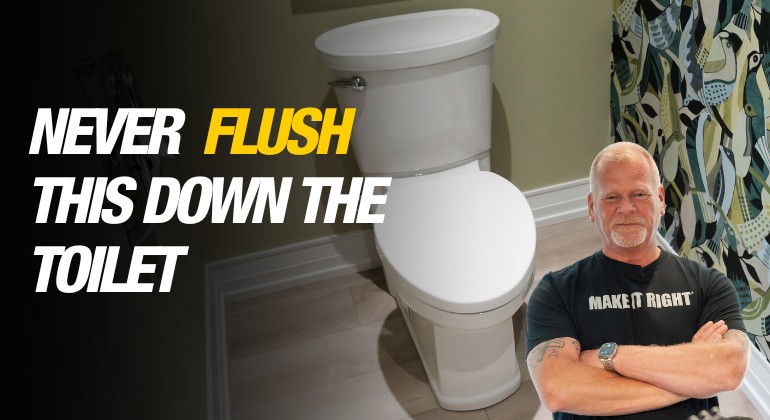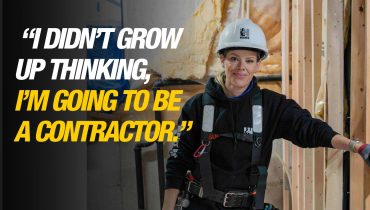In celebration of Women in Construction Week, I thought I’d share my construction journey. People often assume I was born knowing I’d work in construction. When your last name is...

5 Tips to Upgrade Your Kitchen & Increase Its Value
By Mike Holmes
Mike’s Advice / Home Renovation
Friday, September 13th, 2019 @ 11:55am
A good kitchen can bring a lot of personal value to your home, making you feel a little bit happier every time you cook. A well thought out kitchen with top of the line appliances, smart design, and good flow will not only bring a lot of personal value to your space – it’s almost guaranteed to raise the value of your home.
It’s a win-win.
When you’re ready to upgrade to your dream kitchen, here are a few tips to keep in mind.
5. Make Worthwhile Change

Remember to set aside about 20% of your renovation budget as a contingency.
You wouldn’t be updating your kitchen if you weren’t ready for a change, right? While a lot of people jump immediately to the design when dreaming of their perfect space, a kitchen renovation is a good opportunity to address problems in your kitchen.
Before you start thinking about your finishing selections, pay attention to areas of your kitchen that you really want to change. If you’ve got a problem that really drives you crazy – like not enough space to prepare meals, make sure you’re addressing that first – if you don’t, you’ll probably end up regretting it.
This is also a really good time to address features that you’ve always wanted in your kitchen. While your budget will likely keep you from getting the little things that you want for the space – you should try to set aside some money for at least one splurge that you’ve always wanted.
4. Plan Ahead for Upgrades
Does your kitchen use electricity or gas to power your cooking appliances? If you’re planning to switch from electric to gas, or vice-versa, you’ll need to make sure you’re budgeting for it.
If you’re upgrading to heavier-duty appliances, make sure you’re accounting for extra ventilation needs. You’ll want any fumes and moisture to vent directly to the outside of your home.
If you’re not sure your fans are powerful enough, try the tissue test: run your exhaust fan, hold a tissue up to the fan and let go. If the fan is running well, it should hold the tissue in place – if it doesn’t, it’s probably time to replace the fan.
RELATED
Open concept kitchens are a popular choice – but before you knock down any walls to open up your space, think about how you use your kitchen. Do you keep things neat and clean enough that you can have your kitchen on display at all times? When you cook, do you want company, or do you prefer being able to work on your own? Do you have small kids that you need to keep an eye on while you cook?

Custom kitchen cabinets from Milmonde Kitchens.
These are all questions to consider before you swing the hammer. Your contractor and designer can help you make these final decisions.
Creating an open concept space in an area that wasn’t initially designed for it comes with its own set of challenges. Some walls hide ductwork and electrical runs – and by tearing down those walls, you’ll need to find other routes for them.
PRO TIP: Knocking down walls shouldn’t happen without the consultation of a structural engineer. You want to be sure that a wall isn’t load-bearing, and if it is, you’re finding a solution for redistributing that load. It won’t be cheap – but it can be done.
3. Hire the Pros
A kitchen renovation isn’t a do-it-yourself job – but are you also factoring hiring a designer into your budget? Making the wrong design decision can end up being a costly mistake that you need to fix afterward. Working with a designer (and remember, they should be working with you based on your input) who knows the principles of kitchen design can help you create a space that is tailored to your needs, and looks good, too.
The process of hiring a designer is just like hiring a contractor.

Interview as many as possible, ask for their references and check their design portfolio.
Some designers may work best within a certain range of styles, and you want to make sure their capabilities match your vision before you get into the project.
If you’ve already found a contractor that you trust, ask them if they have any designers they frequently work with who they can recommend. Your new kitchen will take a lot of teamwork between you, your contractor, and your designer – and if they understand how to work with one another, you’re already ahead of the game in your renovation.
2. Make Your Selections
Your designer will help you make informed decisions about the materials you select for your kitchen. I like using tile in high traffic areas, like kitchens and bathrooms. Why? It’s durable, easy to clean, and doesn’t absorb moisture.
Tiles come in all shapes and sizes – and can mimic almost any style. If you like the look of hardwood – you can get tile to mimic it.
Smart kitchen appliances are a good choice when you’re upgrading. Why? They’re more energy-efficient, saving you money in the long run. They also connect directly to your smartphone, alerting you when the water filter needs to be replaced, the fridge’s temperature is too high, or the door is left open.
1. Ensure Lighting is up to the Task
There are three types of kitchen lighting: ambient, task, and accent. Ambient is your main source of light – usually from natural sources, like windows and skylights, or is cast directly from the ceiling.
Task lighting will shine extra light on work surfaces (countertops and cabinets) to provide safe lighting while you’re preparing meals. When you’re chopping, cutting, boiling, and baking you need to see properly!
Recessed lights under cabinets are a great way to seamlessly add some much-needed task lighting to your kitchen.
Accent lighting can also provide ambient and task lighting, but its main feature is to highlight your favourite elements of your kitchen.
Your designer can help you figure out where you should focus your lighting, to get the best effect.
A kitchen redesign is one of the major upgrades that you can add that are almost guaranteed to add value to your home. If you’re planning on staying in the home for years to come, make sure you’re enjoying some of that extra value. Make choices for your kitchen that will get you excited to use the space. That’s real value, too.

Custom kitchen cabinets from Milmonde.
RELATED








